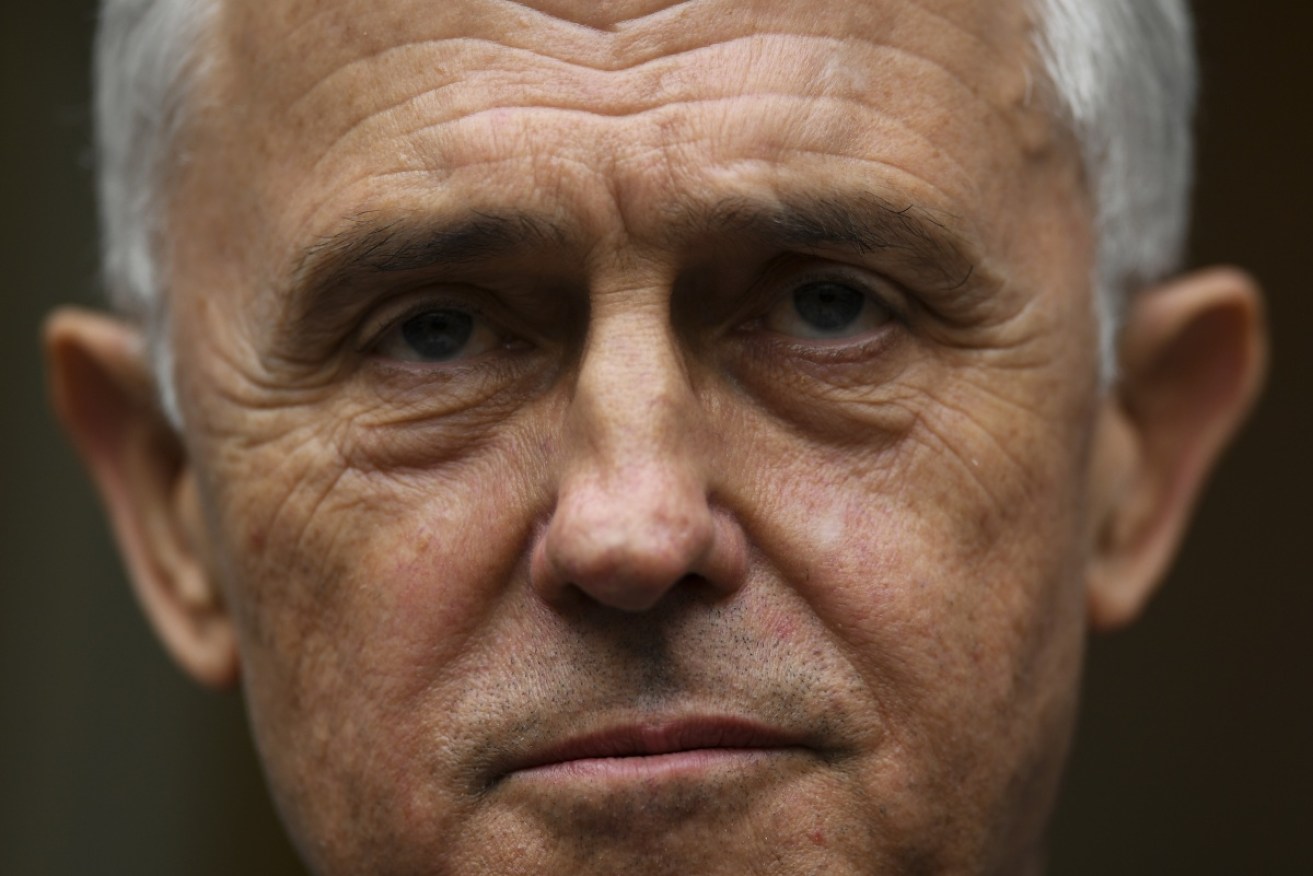Turnbull’s failure to address climate change may be his legacy


Malcolm Turnbull leaves politics having failed to put climate change on the agenda. Photo: AAP
Ousted prime minister Malcolm Turnbull leaves politics on Friday, we can assume forever. On the weekend he will jet off with his wife Lucy for a long jaunt to New York.
On the flight there and back, Mr and Mrs Turnbull will contribute something in the region of seven tonnes of carbon dioxide to the Earth’s atmosphere, doing their little bit to progress global warming.
Last year, the federal government estimates Australia emitted just over 530 million tonnes of carbon dioxide into the atmosphere. That works out at a little under 22 tonnes per person – one of the highest rates in the world.
So the former PM and his wife are each blowing one-fifth of their quota on this little jaunt. We can safely assume Mr Turnbull, with all the flying he’s done as PM, has already shot way past the per capita average this year.
As he gazes out the window at the CO2 spewing into the sky, the poetry may or may not be lost on him. Even in departure, he is failing dismally to do what so many hoped he would do as PM: Address climate change.
If there’s any doubt Mr Turnbull once took the dangers of climate change seriously, here’s how he described the issue in 2010.
“Climate change is a global problem. The planet is warming because of the growing level of greenhouse gas emissions from human activity.
“If this trend continues then truly catastrophic consequences will ensue, from rising sea levels to reduced water availability to more heatwaves and fires.”
Nothing has changed since then. In fact, the global consensus has only become clearer that climate change is real, is caused by human activity, and is likely to have devastating effects on the planet. Big business, which for many years was the major obstacle to climate change mitigation, has even accepted urgent action is needed.
But the Liberal Party, or at least the right wing of the Liberal Party, has only become more recalcitrant. In the mind of Tony Abbott, still the spiritual leader of the conservative wing, climate change remains a left-wing conspiracy.
Malcolm Turnbull’s final act before he was knifed was to give up his one effort to create a policy on carbon emissions. That policy was an ill-defined measure in the National Energy Guarantee (NEG) that would have imposed carbon emission limits on energy retailers.
Exactly how it would have worked was not clear, but analysis by IBISWorld suggested the measure would only account for 5 per cent of the emissions reductions required under the Paris agreement.
This paltry effort to reduce emissions, which received even the support of the coal lobby, was too radical for the climate change sceptics in the Liberal Party. And when faced with a leadership challenge, Mr Turnbull capitulated and dropped it.
That means Mr Turnbull failed to legislate any tangible climate change action in his three-year tenure as PM.
His replacement, Prime Minister Scott Morrison, the man who once brought a lump of coal into Parliament to taunt the opposition with, has now appointed Angus Taylor as energy minister, a man around whom there floats suspicions of climate change scepticism.
In his first speech as minister on Thursday, Mr Taylor insisted he was “not sceptical about climate science, but …”
But what?
“… but I am and have been for many years sceptical about the economics of so many of the emissions-reduction schemes dreamed up by vested interests, technocrats and politicians around the world.”
In his ensuing speech, Mr Taylor outlined an energy policy lacking any measures to reduce carbon emissions. And his rhetoric was hostile to the idea of climate change action, attacking Labor for putting climate change at the centre of its energy policy.
“The difference between us and them could not be more stark. Labor’s platform puts climate change at the centre of their broader economic strategy,” he said.
“But as the prime minister said, this government is instead focused on delivering for all Australians and that means reducing electricity prices and cost-of-living pressures.”
Climate change action, it seems, is squarely off the Liberals’ agenda.
Based on his public statements, Malcolm Turnbull, like his fellow former Liberal leader John Hewson, considers climate change to be a brute fact and a major threat.
But as prime minister he failed to turn this conviction into policy – and that failure may yet be his defining legacy.








